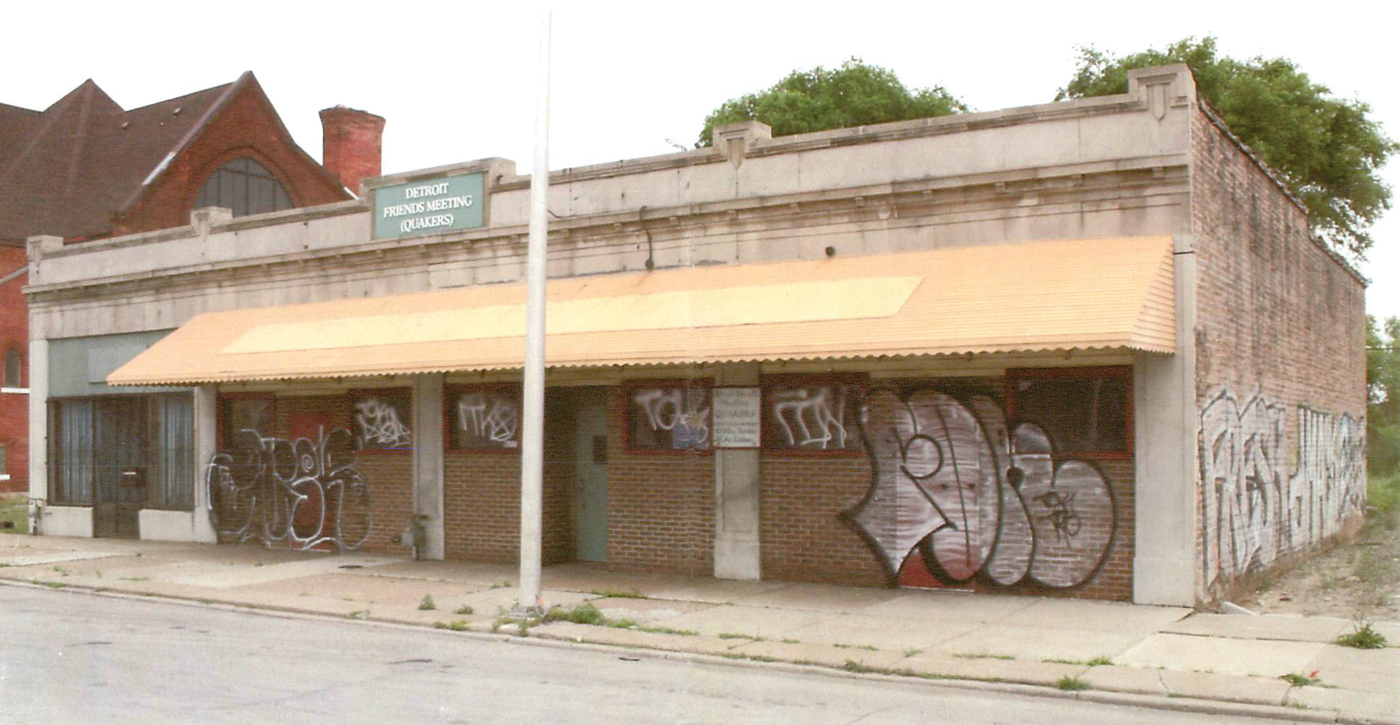The morning was Friday, hot and muggy; the month July. I was in the parking lot of Friendship House, a community action organization that I direct, in an inner city neighborhood of Detroit, Michigan. The double side doors of my Ford Universal van were open and I was inside cleaning up, in anticipation of guests who were to arrive for a tour of Hamtramck, a neighborhood in Detroit, later in the day. I turned around to see a man, about 30 years old, with a gun. He pointed the gun at my stomach and demanded all my money. It was one of those moments when a million things go through your mind. I have always prayed that if I were ever faced with a violent situation I would be able to respond in a way that is consistent with my conviction for nonviolent action.
I was frightened but sensed a calm in my spirit that was, I believe, God’s gift to me at that moment. I quickly assessed the situation. The man smelled of alcohol but he was not agitated or overly aggressive. I guessed that he did not want to attract attention from the other people driving through the parking lot. I clearly remembered a piece of nonviolence training: If you can engage your enemy in a common task, the distraction may lead to a humane interaction. It was as if a voice inside me was giving me wisdom for the moment.
So, I said: "You know, I only have $1 in my purse; but here, let’s look through my purse together."
The man climbed in the van with me and laid his gun down on the seat. He undid one zipper, I undid another; we searched until we found the bill I knew was in my purse. He sat down on the floor of the van with his legs dangled out on the pavement. He started to cry.
"Is this your first time?" I asked. He nodded his head "yes." I thought, is he putting on an act? I tested my theory.
"Look," I said, "I am a minister; I work here at Friendship House. We are here to help. Why are you crying?"
He cried harder and told me how he had really messed this up and what a mess his life was. His mom had died four months earlier and his world had fallen apart. He lost his job, was terribly depressed, and had come to this, attempting a robbery. He had an 11-year-old daughter and was ashamed of how he was unable to care for her in his state of grief and depression. We talked for 40 minutes.
I kept handing him tissues and he got all his grief out. He hadn’t talked to any- one about his feelings, not even his father, from whom he had stolen the gun.
I asked him if his mother was a praying woman. "Yes," he said; and I suggested we pray together about getting his life together. He closed his eyes, but I didn’t. We had a prayer.
Afterwards we made a plan. I promised that I would not call the police as long as he did two things: return the gun to his father and tell him what happened today; and come back to meet with me about finding a job, without being under the influence of alcohol.
We agreed and I started to relax. He was quiet for a minute then panicked. "You are going to call the police when I leave, aren’t you?"
"George, I am not. You have a daughter and you can’t take care of her from jail. You are just going to have to trust me."
We talked some more and he asked me if I could forgive him. I assured him I could. We exchanged names and phone numbers and agreed to meet on Monday. He got up to leave, got halfway across the parking lot, then turned around and
came back. "Are you sure you forgive me?" he asked again. "Yes, with God’s help, I forgive you." "You know what I really need?" he asked. "What do you really need?" (I thought he was going to ask me for a cigarette!)
"I need a hug." So I gave him a hug and, reassured, he walked away. He called me later that day to thank me again, for forgiving him!
We met the next week and about six weeks later we were able to find George a job. He reported to me that he went home and talked to his dad that Friday. Together, with George’s sister, they talked and grieved together, something they had not been able to do when his mom had died. George was amazed at the healing he felt in his family relationships. We worked together to get his dad into the Food Bank program operated by Friendship House, something he qualified for as a senior with low income. George spent some time volunteering at the Food Bank and hanging out with the men there who offer the love and friendship of God as part of their volunteer work. One of them even took George out to lunch a couple of times.
George has had several jobs since then; but whenever he comes to pick up food for his dad, he always gives me a hug. It was the mugging that turned into a hugging.



